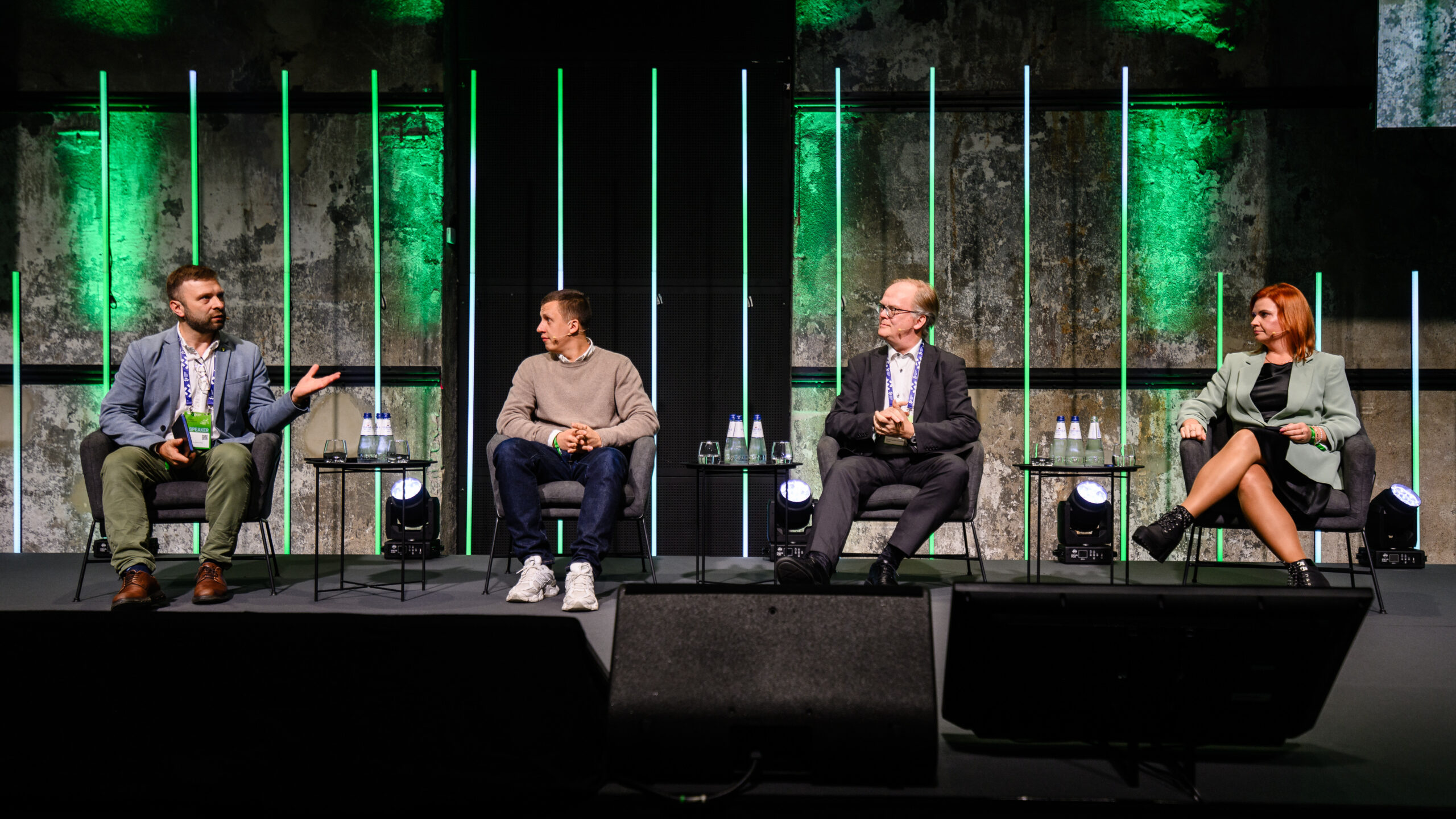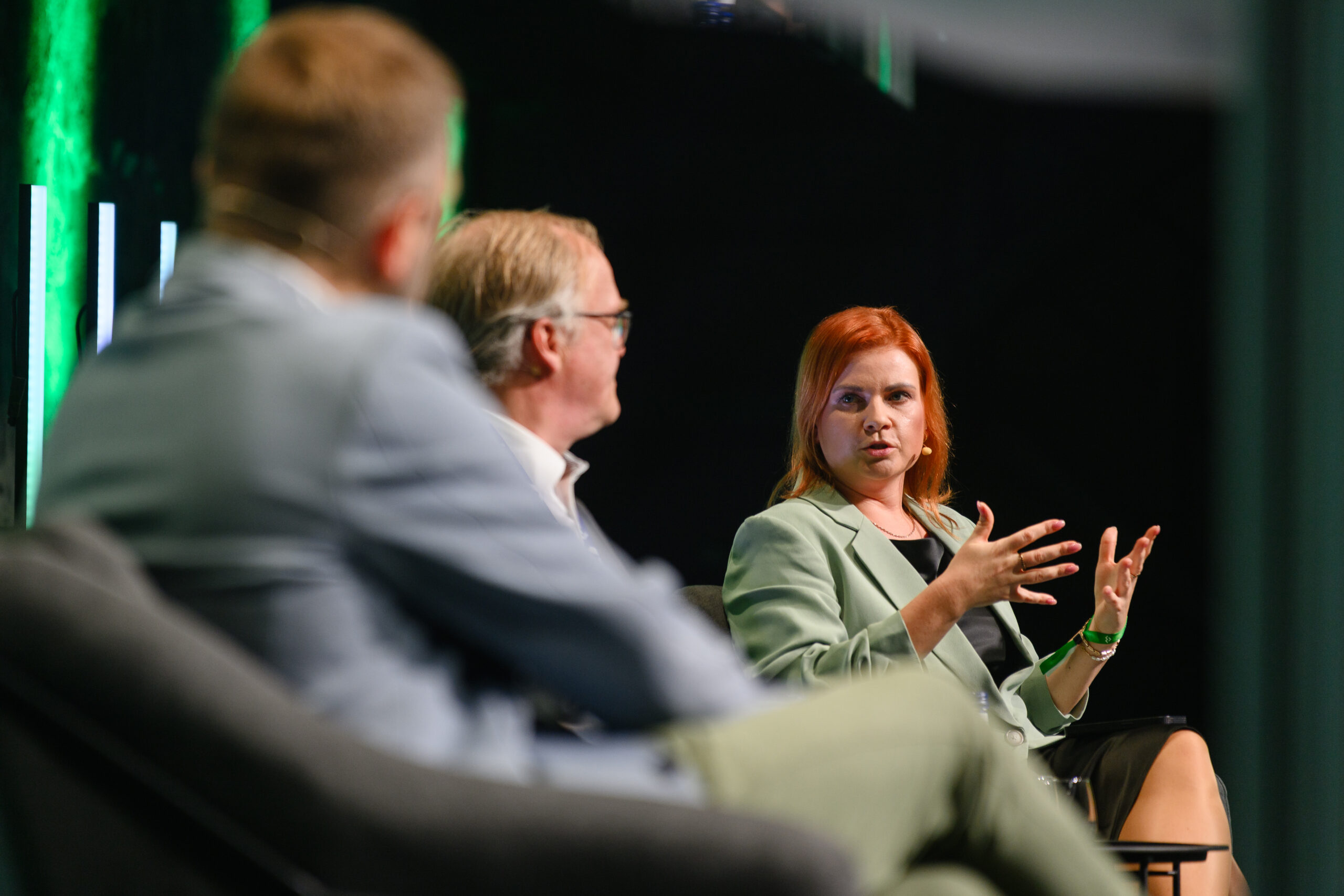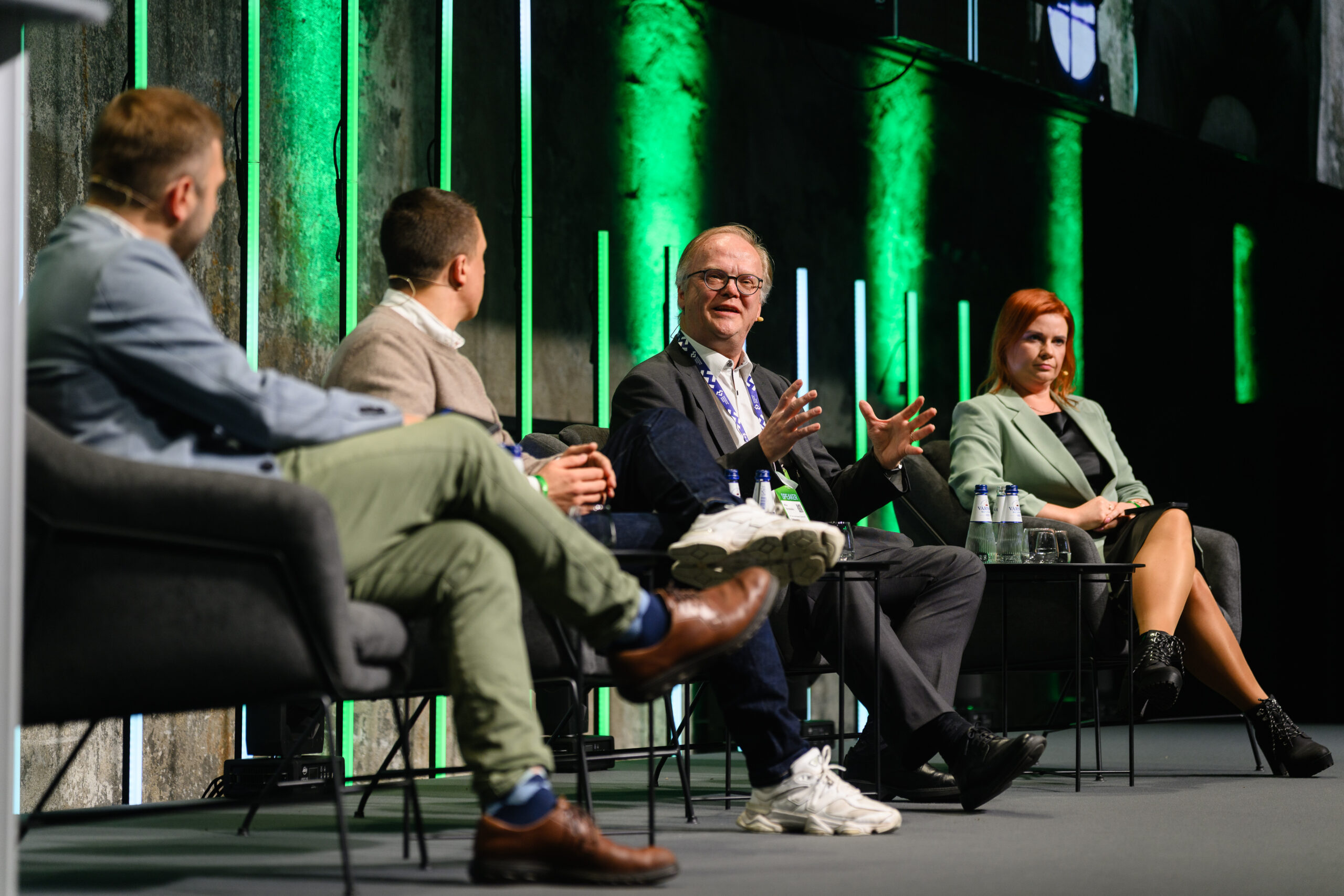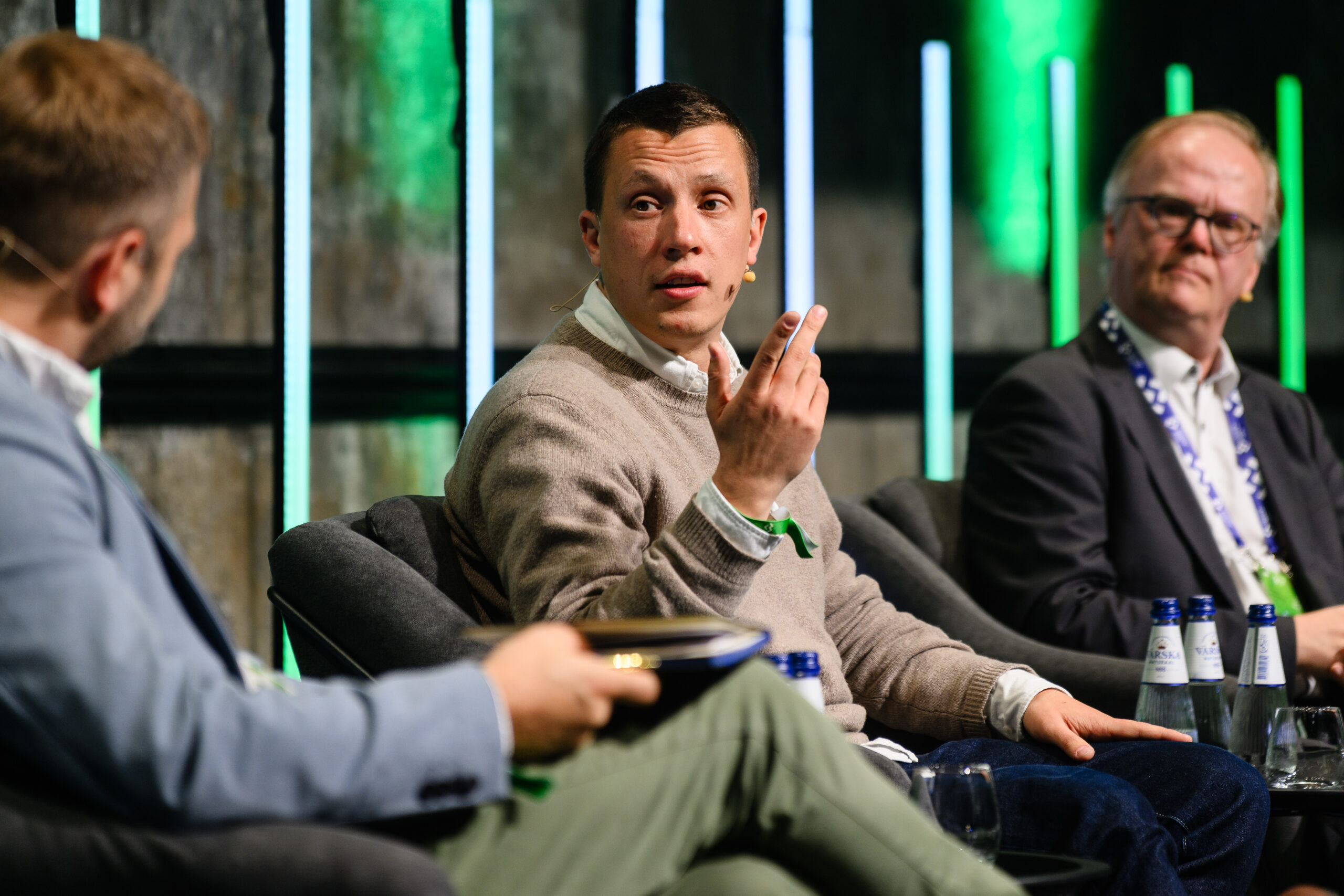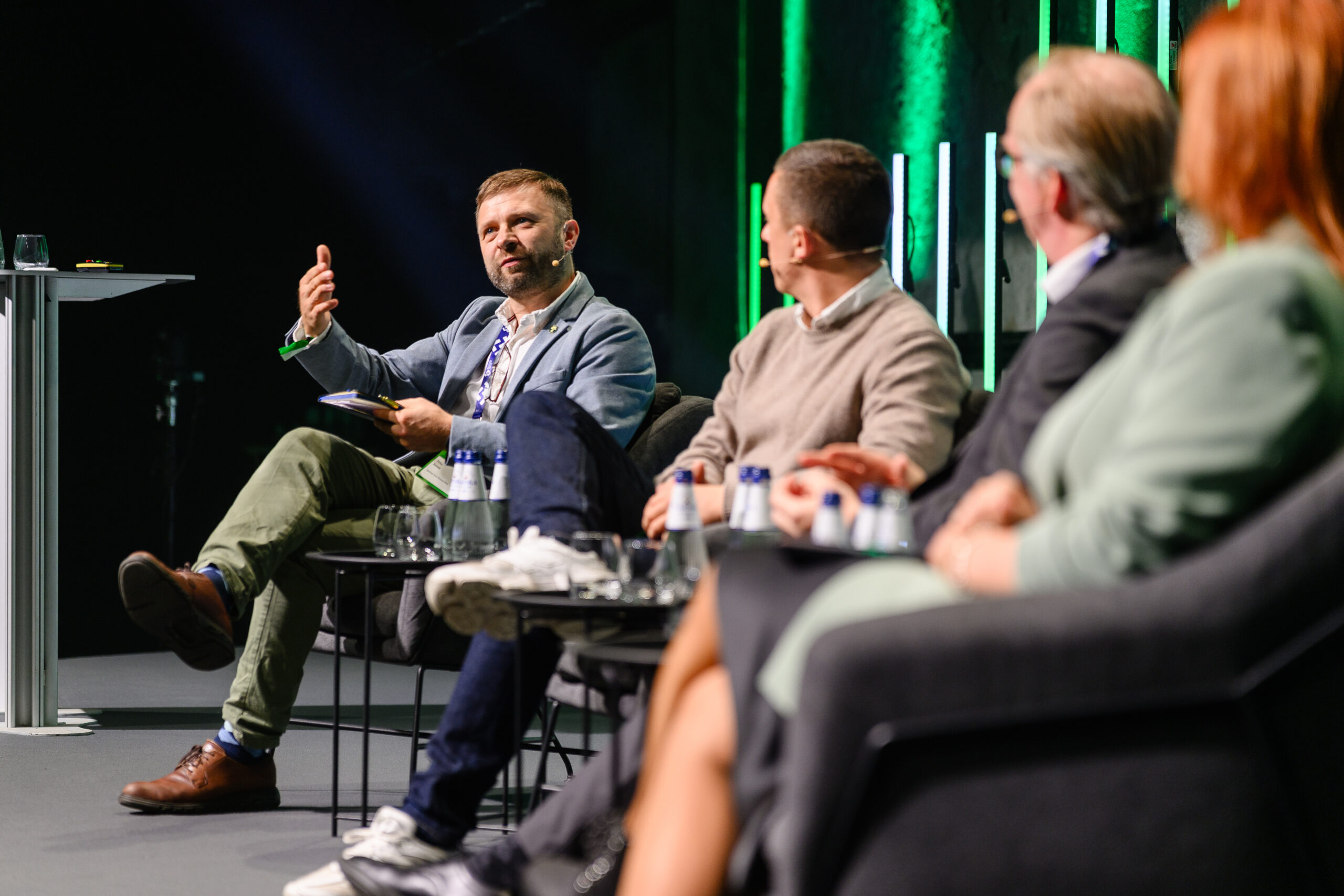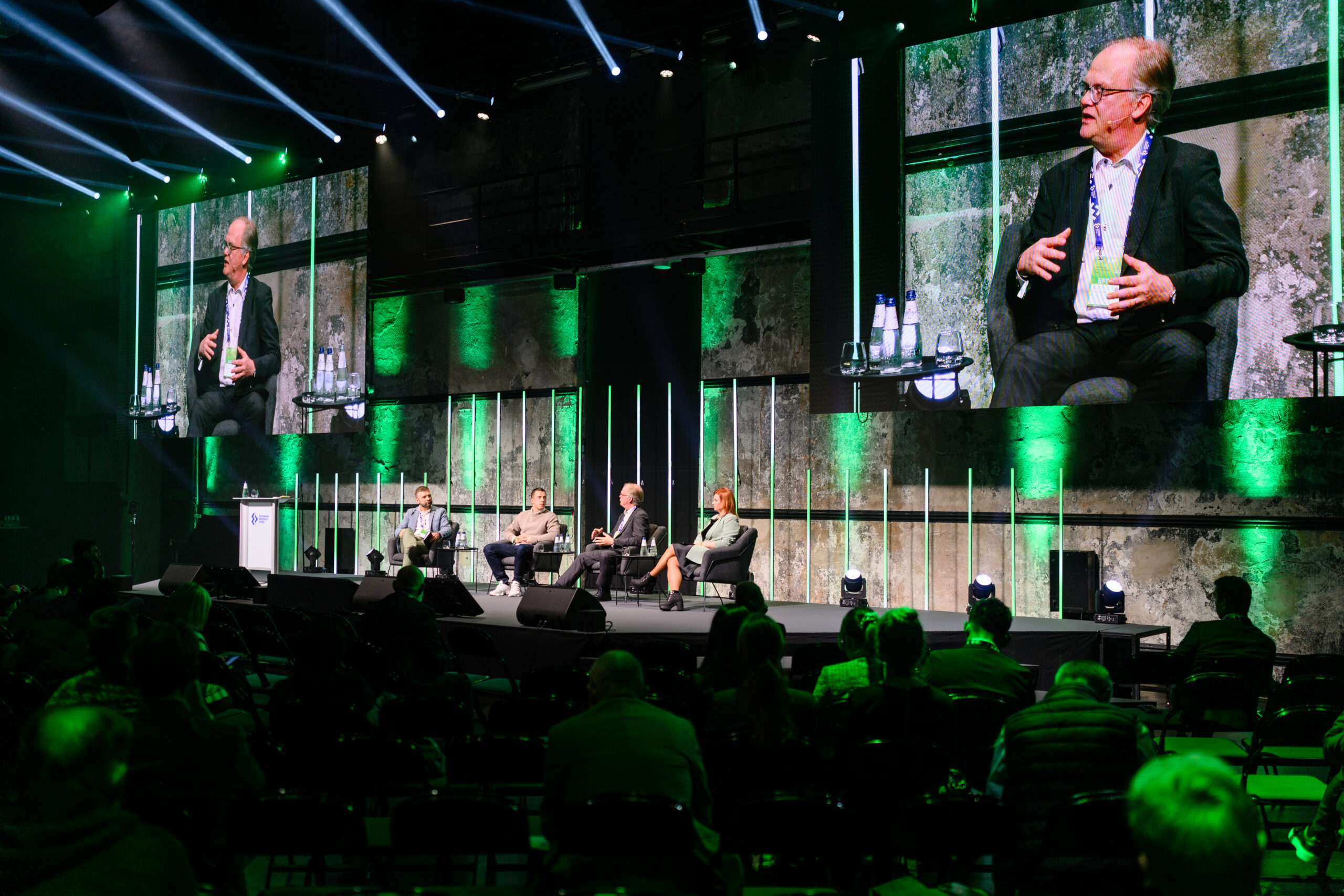On 22 September, Defence Innovation Day focused on a key question: how innovation and cross-border collaboration are reshaping the defence capabilities of NATO allies and new partners. The panel discussion “Cross-Border Innovation Cooperation” was moderated by Pirko Konsa, Member of the Management Board at Tartu Science Park, and featured Mika Rantakokko (VTT), Jaan Kokk (Superangel), and Kati Pärn (Startup Estonia) as speakers.
The discussion began with the observation that the defence industry has long been highly state-centric and often closed to newcomers. “Many investment funds and national support mechanisms have traditionally excluded the defence sector. But now we need to make a swift turnaround,” noted Pirko Konsa.
Startups are increasingly seen as vital partners, and restrictions on dual-use technologies have been eased. The war in Ukraine has demonstrated that civilian innovation can rapidly evolve into defence solutions, making openness and collaboration essential.
Jaan Kokk (Superangel) confirmed that change is underway: “We’re moving slowly, but in the right direction. The fact that these questions are even being asked shows that the mindset is shifting. We now understand that potential conflict doesn’t stop at national borders.”
From Finland’s VTT, Mika Rantakokko emphasised how joining NATO has transformed cooperation opportunities both for Finland and the region: “It’s been a true game-changer. Collaboration among allies has expanded, giving smaller companies a completely new level of access to the defence sector. NATO’s framework builds trust and confidence, helping innovations reach defence systems faster.”
When Konsa asked how national approaches differ, Rantakokko noted that Estonia is more flexible and experimental, while Finland is more structured and focused on sustainability. “These two approaches complement each other very well,” he added.
Kati Pärn (Startup Estonia) highlighted that joint action among the Nordics and Baltics could create a globally competitive market: “If Estonia, Finland, and Sweden validate startup solutions within a unified structure, these companies can compete with firms from Germany, the UK, or France.”
The discussion also touched on procurement and testing environments. Rantakokko pointed out that defence procurements are traditionally slow: “There’s a lot to learn from Ukraine. No one there can wait seven years for a new solution to come through procurement.” As a solution, participants proposed more innovative procurement processes and the creation of new testing centres.
Kokk täiendas: „Küsimus, mida ma investorite seas kõige rohkem kuulen, pole mitte mida müüa, vaid kellele üldse rääkida. Sellest tuleb kiiresti üle saada.“
At the end of the panel, Konsa asked each participant for one recommendation to their country’s Ministry of Defence:
Jaan Kokk: “Estonia should trust the Force Transformation Command and its initiatives.”
Mika Rantakokko: “Finland needs a more innovative procurement and governance model to accelerate defence development.”
Kati Pärn: “We need patience – but also open-mindedness. The state must learn faster cycles from startups.”
The panel concluded with a shared message: time is the most critical resource. If processes remain slow and fragmented, technology will move elsewhere. That’s why the Nordic-Baltic region must act now — to speed up procurement, establish shared test centres, and connect startups with major industry players. Only then can the region’s small size become its global strength.
—-
Defence Innovation Day was organized by Tehnopol and the Ministry of Economic Affairs and Communications through the NATO DIANA Estonian Accelerator, with one program track curated by SparkUp Tartu Science Park.

